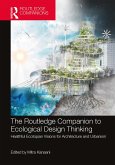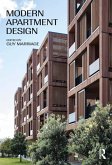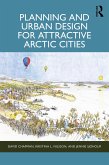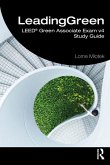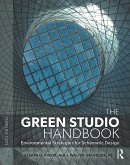Routledge Handbook of Resilient Thermal Comfort (eBook, ePUB)
Redaktion: Nicol, Fergus; Roaf, Susan; Rijal, Hom Bahadur
45,95 €
45,95 €
inkl. MwSt.
Sofort per Download lieferbar

23 °P sammeln
45,95 €
Als Download kaufen

45,95 €
inkl. MwSt.
Sofort per Download lieferbar

23 °P sammeln
Jetzt verschenken
Alle Infos zum eBook verschenken
45,95 €
inkl. MwSt.
Sofort per Download lieferbar
Alle Infos zum eBook verschenken

23 °P sammeln
Routledge Handbook of Resilient Thermal Comfort (eBook, ePUB)
Redaktion: Nicol, Fergus; Roaf, Susan; Rijal, Hom Bahadur
- Format: ePub
- Merkliste
- Auf die Merkliste
- Bewerten Bewerten
- Teilen
- Produkt teilen
- Produkterinnerung
- Produkterinnerung

Bitte loggen Sie sich zunächst in Ihr Kundenkonto ein oder registrieren Sie sich bei
bücher.de, um das eBook-Abo tolino select nutzen zu können.
Hier können Sie sich einloggen
Hier können Sie sich einloggen
Sie sind bereits eingeloggt. Klicken Sie auf 2. tolino select Abo, um fortzufahren.

Bitte loggen Sie sich zunächst in Ihr Kundenkonto ein oder registrieren Sie sich bei bücher.de, um das eBook-Abo tolino select nutzen zu können.
This book brings together some of the finest academics in the field to address the important questions around the way in which people experience their physical environments including temperature, light, acoustics and so forth.
- Geräte: eReader
- mit Kopierschutz
- eBook Hilfe
Andere Kunden interessierten sich auch für
![Routledge Handbook of Resilient Thermal Comfort (eBook, PDF) Routledge Handbook of Resilient Thermal Comfort (eBook, PDF)]() Routledge Handbook of Resilient Thermal Comfort (eBook, PDF)45,95 €
Routledge Handbook of Resilient Thermal Comfort (eBook, PDF)45,95 €![FABRIC[ated] (eBook, ePUB) FABRIC[ated] (eBook, ePUB)]() FABRIC[ated] (eBook, ePUB)39,95 €
FABRIC[ated] (eBook, ePUB)39,95 €![The Routledge Companion to Ecological Design Thinking (eBook, ePUB) The Routledge Companion to Ecological Design Thinking (eBook, ePUB)]() The Routledge Companion to Ecological Design Thinking (eBook, ePUB)45,95 €
The Routledge Companion to Ecological Design Thinking (eBook, ePUB)45,95 €![Modern Apartment Design (eBook, ePUB) Modern Apartment Design (eBook, ePUB)]() Modern Apartment Design (eBook, ePUB)39,95 €
Modern Apartment Design (eBook, ePUB)39,95 €![Planning and Urban Design for Attractive Arctic Cities (eBook, ePUB) Planning and Urban Design for Attractive Arctic Cities (eBook, ePUB)]() David ChapmanPlanning and Urban Design for Attractive Arctic Cities (eBook, ePUB)37,95 €
David ChapmanPlanning and Urban Design for Attractive Arctic Cities (eBook, ePUB)37,95 €![LeadingGreen (eBook, ePUB) LeadingGreen (eBook, ePUB)]() Lorne MlotekLeadingGreen (eBook, ePUB)48,95 €
Lorne MlotekLeadingGreen (eBook, ePUB)48,95 €![The Green Studio Handbook (eBook, ePUB) The Green Studio Handbook (eBook, ePUB)]() Alison G KwokThe Green Studio Handbook (eBook, ePUB)76,95 €
Alison G KwokThe Green Studio Handbook (eBook, ePUB)76,95 €-
-
-
This book brings together some of the finest academics in the field to address the important questions around the way in which people experience their physical environments including temperature, light, acoustics and so forth.
Hinweis: Dieser Artikel kann nur an eine deutsche Lieferadresse ausgeliefert werden.
Dieser Download kann aus rechtlichen Gründen nur mit Rechnungsadresse in A, B, BG, CY, CZ, D, DK, EW, E, FIN, F, GR, HR, H, IRL, I, LT, L, LR, M, NL, PL, P, R, S, SLO, SK ausgeliefert werden.
Hinweis: Dieser Artikel kann nur an eine deutsche Lieferadresse ausgeliefert werden.
Produktdetails
- Produktdetails
- Verlag: Taylor & Francis eBooks
- Seitenzahl: 654
- Erscheinungstermin: 19. April 2022
- Englisch
- ISBN-13: 9781000553635
- Artikelnr.: 63769880
- Verlag: Taylor & Francis eBooks
- Seitenzahl: 654
- Erscheinungstermin: 19. April 2022
- Englisch
- ISBN-13: 9781000553635
- Artikelnr.: 63769880
- Herstellerkennzeichnung Die Herstellerinformationen sind derzeit nicht verfügbar.
Fergus Nicol is an award winning leader in the field of adaptive thermal comfort, having started as a physicist at the Building Research Establishment in the 1960s. He moved on to work with the UK Medical Research Council, and into teaching, before leaving both to start the radical book shop Bookmarks. Returning to research in 1992, he is now an Emeritus Professor in a number of universities, and a top cited scholar across his many publications. He led influential pan-European and Pakistan studies on comfort and he leads the NCEUB, Network for Comfort and Energy use in Buildings. He co-founded and ran the Windsor Conferences on comfort and is internationally respected for his support of fellow researchers and students. Hom Bahadur Rijal is an award winning researcher, author and Professor at Tokyo City University, Japan, specialising in adaptive thermal comfort and occupant behaviour within buildings having published over 80 journal papers, 12 book chapters and co-edited books. Growing up in a remote village in Nepal where he remains a valued social activist, he studied higher education in Japan and worked in England. He is currently embarked on a Japan-wide project to establish the adaptive thermal comfort limits for major cities across Japan. In 2005 he received the Encouragement Prize for a distinguished article from the Architectural Institute of Japan. Susan Roaf is Emeritus Professor of Architectural Engineering at Heriot Watt University. Raised in Malaysia and the Australian bush, and educated in Britain, she has lived and worked as an architect, anthropologist and archaeologist in Iran, Iraq, Pakistan, California and Antarctica, experiences that colour her unique understanding of buildings and comfort in different climates and cultures and inspired her work on adapting buildings and cities to a heating world. She pioneered UK building integrated solar technologies and eco-design, and with Nicol and Humphreys has promoted adaptive thermal comfort globally. Her expertise in ancient technologies informed some of her 23 books and other publications, all aimed at understanding building performance in the past, present and future.
Part I New approaches to comfort, occupants and resilience 1. The shapes of
comfort and resilience Fergus Nicol 2. Rethinking resilient thermal comfort
within the context of human-building resilience Marcel Schweiker 3. Why
occupants need a role in building operation: A framework for resilient
design Lisa Heschong and Julia Day Part II Climate change and comfort 4.
The impact of future UK heatwave to the thermal resilience in office and
residential buildings - A comparison Asif Din and Hala El Khorazaty 5.
Resilient design in extreme climates: 5-steps overheating assessment method
for naturally ventilated buildings Daniel Zepeda-Rivas, Jorge
Rodríguez-Álvarez and José Roberto García-Chávez Part III Sleep and comfort
for the old and the young 6. Summertime indoor temperatures and thermal
comfort in nursing care homes in London Rajat Gupta and Alastair Howard 7.
Assessing human resilience: A study of thermal comfort, wellbeing and
health of older people Terence Williamson, Veronica Soebarto, Helen
Bennetts, Larissa Arakawa Martins, Dino Pisaniello, Alana Hansen, Renuka
Visvanathan, Andrew Carre and Joost van Hoof 8. Do children feel warmer
than adults? Overheating prevention in schools in the face of climate
change Marije te Kulve, Runa T. Hellwig, Froukje van Dijken and Atze
Boerstra 9. Causes and effects of partial cooling during sleep Noriko
Umemiya and Yuhan Chen Part IV Resilient design for buildings and cities
10. Overheating and passive cooling strategies in low-income residential
buildings in Abuja, Nigeria Michael U. Adaji, Timothy O. Adekunle and
Richard Watkins 11. The devolution of thermal resilience in residential
houses in Khartoum Huda Z.T. Elsherif, Marialena Nikolopoulou and Henrik
Schoenefeldt 12. Design of adaptive opportunities for people in buildings
Runa T. Hellwig, Despoina Teli, Marcel Schweiker, Joon-Ho Choi, M.C.
Jeffrey Lee, Rodrigo Mora, Rajan Rawal, Zhaojun Wang and Farah Al-Atrash
13. Resiliency lessons of traditional living in nomadic yurts Dolaana
Khovalyg 14. Passive cooling strategies for low carbon architecture Pablo
La Roche 15. Passive design for extreme heat: The Austrian pavilion at EXPO
2020 in Dubai Georgios Gourlis and Peter Holzer 16. Studying outdoor
thermal comfort and resilience in an urban design perspective: A case study
in Ipoh old town and new town, Malaysia Mei-Yee Teoh, Michihiko Shinozaki,
Kei Saito and Ismail Said Part V Resilience and comfort in offices 17.
Adaptive approaches to enhancing resilient thermal comfort in Japanese
offices Hom B. Rijal, Michael A. Humphreys and J. Fergus Nicol 18. Thermal
comfort and occupant disposition in mixed-mode offices in a Brazilian
subtropical climate Ricardo Forgiarini Rupp, Jørn Toftum and Enedir Ghisi
19. Tools and rules for behavioural agency in buildings: Minimising energy
use while maintaining comfort Julia K. Day 20. Mixed mode is better than
air conditioned offices for resilient comfort: Adaptive behaviour and
visual thermal landscaping Sally Shahzad and Hom B Rijal 21. Effects of
light and ambient temperature on visual and thermal appraisals Maaike
Kompier, Karin Smolders and Yvonne de Kort 22. Reaching thermal comfort
zone limits for resilient building operation: A winter case study for
offices Dolaana Khovalyg, Verena M. Barthelmes and Arnab Chatterjee Part VI
Indoor environmental quality, energy and life cycle analysis 23.
Methodology of IEQ assessment in energy efficient buildings Karel Kabele,
Zuzana Veverková and Miroslav Urban 24. Flexible future comfort Sanober
Hassan Khattak, Andrew Wright and Sukumar Natarajan 25. Sight beyond reach:
Dynamic life cycle assessment to support resilient retrofit decision-making
in a changing climate Vanessa Gomes, Marcella R. M. Saade, Leticia O.
Neves, Iris Loche, Lizzie M. Pulgrossi and Maristela G. Silva 26. Indoor
environmental quality, energy-efficiency and thermal comfort in the
retrofitting of housing: A literature review Marco Ortiz and Philomena M.
Bluyssen Part VII The role of ventilation and radiation in cooling and
heating 27. Double skin buildings and resilience for commercial buildings
Eusébio Conceição, João Gomes, Ma Inês Conceição, Ma Manuela Lúcio and
Hazim Awbi 28. Cooling with thermally activated, radiative surfaces:
Resilient answers to upcoming cooling needs, extending the application
range of adaptive comfort Peter Holzer and David Stuckey 29. Rethinking
radiant comfort Eric Teitelbaum and Forrest Meggers Part VIII National
databases and comfort education 30. Towards resilient cooling possibilities
for Brazilians' hot and humid climates: Exploring the national thermal
comfort database Carolina Buonocore, Renata De Vecchi, Greici Ramos, Maira
Andre, Christhina Candido and Roberto Lamberts 31. Teaching comfort:
Critical approaches, digital interventions and contemporary choices Ola
Uduku, B K Satish, Gillian Treacy and Yiqianq Zhao Part IX COVID-19:
transmission and trust 32. How airborne transmission of SARS-CoV-2
confirmed the need for new ways of proper ventilation Philomena M. Bluyssen
33. COVID-19: Trust, windows and the psychology of resilience Susan Roaf
Part X The past, and future of comfort standards 34. Resilient comfort
standards Susan Roaf and Fergus Nicol Index
comfort and resilience Fergus Nicol 2. Rethinking resilient thermal comfort
within the context of human-building resilience Marcel Schweiker 3. Why
occupants need a role in building operation: A framework for resilient
design Lisa Heschong and Julia Day Part II Climate change and comfort 4.
The impact of future UK heatwave to the thermal resilience in office and
residential buildings - A comparison Asif Din and Hala El Khorazaty 5.
Resilient design in extreme climates: 5-steps overheating assessment method
for naturally ventilated buildings Daniel Zepeda-Rivas, Jorge
Rodríguez-Álvarez and José Roberto García-Chávez Part III Sleep and comfort
for the old and the young 6. Summertime indoor temperatures and thermal
comfort in nursing care homes in London Rajat Gupta and Alastair Howard 7.
Assessing human resilience: A study of thermal comfort, wellbeing and
health of older people Terence Williamson, Veronica Soebarto, Helen
Bennetts, Larissa Arakawa Martins, Dino Pisaniello, Alana Hansen, Renuka
Visvanathan, Andrew Carre and Joost van Hoof 8. Do children feel warmer
than adults? Overheating prevention in schools in the face of climate
change Marije te Kulve, Runa T. Hellwig, Froukje van Dijken and Atze
Boerstra 9. Causes and effects of partial cooling during sleep Noriko
Umemiya and Yuhan Chen Part IV Resilient design for buildings and cities
10. Overheating and passive cooling strategies in low-income residential
buildings in Abuja, Nigeria Michael U. Adaji, Timothy O. Adekunle and
Richard Watkins 11. The devolution of thermal resilience in residential
houses in Khartoum Huda Z.T. Elsherif, Marialena Nikolopoulou and Henrik
Schoenefeldt 12. Design of adaptive opportunities for people in buildings
Runa T. Hellwig, Despoina Teli, Marcel Schweiker, Joon-Ho Choi, M.C.
Jeffrey Lee, Rodrigo Mora, Rajan Rawal, Zhaojun Wang and Farah Al-Atrash
13. Resiliency lessons of traditional living in nomadic yurts Dolaana
Khovalyg 14. Passive cooling strategies for low carbon architecture Pablo
La Roche 15. Passive design for extreme heat: The Austrian pavilion at EXPO
2020 in Dubai Georgios Gourlis and Peter Holzer 16. Studying outdoor
thermal comfort and resilience in an urban design perspective: A case study
in Ipoh old town and new town, Malaysia Mei-Yee Teoh, Michihiko Shinozaki,
Kei Saito and Ismail Said Part V Resilience and comfort in offices 17.
Adaptive approaches to enhancing resilient thermal comfort in Japanese
offices Hom B. Rijal, Michael A. Humphreys and J. Fergus Nicol 18. Thermal
comfort and occupant disposition in mixed-mode offices in a Brazilian
subtropical climate Ricardo Forgiarini Rupp, Jørn Toftum and Enedir Ghisi
19. Tools and rules for behavioural agency in buildings: Minimising energy
use while maintaining comfort Julia K. Day 20. Mixed mode is better than
air conditioned offices for resilient comfort: Adaptive behaviour and
visual thermal landscaping Sally Shahzad and Hom B Rijal 21. Effects of
light and ambient temperature on visual and thermal appraisals Maaike
Kompier, Karin Smolders and Yvonne de Kort 22. Reaching thermal comfort
zone limits for resilient building operation: A winter case study for
offices Dolaana Khovalyg, Verena M. Barthelmes and Arnab Chatterjee Part VI
Indoor environmental quality, energy and life cycle analysis 23.
Methodology of IEQ assessment in energy efficient buildings Karel Kabele,
Zuzana Veverková and Miroslav Urban 24. Flexible future comfort Sanober
Hassan Khattak, Andrew Wright and Sukumar Natarajan 25. Sight beyond reach:
Dynamic life cycle assessment to support resilient retrofit decision-making
in a changing climate Vanessa Gomes, Marcella R. M. Saade, Leticia O.
Neves, Iris Loche, Lizzie M. Pulgrossi and Maristela G. Silva 26. Indoor
environmental quality, energy-efficiency and thermal comfort in the
retrofitting of housing: A literature review Marco Ortiz and Philomena M.
Bluyssen Part VII The role of ventilation and radiation in cooling and
heating 27. Double skin buildings and resilience for commercial buildings
Eusébio Conceição, João Gomes, Ma Inês Conceição, Ma Manuela Lúcio and
Hazim Awbi 28. Cooling with thermally activated, radiative surfaces:
Resilient answers to upcoming cooling needs, extending the application
range of adaptive comfort Peter Holzer and David Stuckey 29. Rethinking
radiant comfort Eric Teitelbaum and Forrest Meggers Part VIII National
databases and comfort education 30. Towards resilient cooling possibilities
for Brazilians' hot and humid climates: Exploring the national thermal
comfort database Carolina Buonocore, Renata De Vecchi, Greici Ramos, Maira
Andre, Christhina Candido and Roberto Lamberts 31. Teaching comfort:
Critical approaches, digital interventions and contemporary choices Ola
Uduku, B K Satish, Gillian Treacy and Yiqianq Zhao Part IX COVID-19:
transmission and trust 32. How airborne transmission of SARS-CoV-2
confirmed the need for new ways of proper ventilation Philomena M. Bluyssen
33. COVID-19: Trust, windows and the psychology of resilience Susan Roaf
Part X The past, and future of comfort standards 34. Resilient comfort
standards Susan Roaf and Fergus Nicol Index
Part I New approaches to comfort, occupants and resilience 1. The shapes of
comfort and resilience Fergus Nicol 2. Rethinking resilient thermal comfort
within the context of human-building resilience Marcel Schweiker 3. Why
occupants need a role in building operation: A framework for resilient
design Lisa Heschong and Julia Day Part II Climate change and comfort 4.
The impact of future UK heatwave to the thermal resilience in office and
residential buildings - A comparison Asif Din and Hala El Khorazaty 5.
Resilient design in extreme climates: 5-steps overheating assessment method
for naturally ventilated buildings Daniel Zepeda-Rivas, Jorge
Rodríguez-Álvarez and José Roberto García-Chávez Part III Sleep and comfort
for the old and the young 6. Summertime indoor temperatures and thermal
comfort in nursing care homes in London Rajat Gupta and Alastair Howard 7.
Assessing human resilience: A study of thermal comfort, wellbeing and
health of older people Terence Williamson, Veronica Soebarto, Helen
Bennetts, Larissa Arakawa Martins, Dino Pisaniello, Alana Hansen, Renuka
Visvanathan, Andrew Carre and Joost van Hoof 8. Do children feel warmer
than adults? Overheating prevention in schools in the face of climate
change Marije te Kulve, Runa T. Hellwig, Froukje van Dijken and Atze
Boerstra 9. Causes and effects of partial cooling during sleep Noriko
Umemiya and Yuhan Chen Part IV Resilient design for buildings and cities
10. Overheating and passive cooling strategies in low-income residential
buildings in Abuja, Nigeria Michael U. Adaji, Timothy O. Adekunle and
Richard Watkins 11. The devolution of thermal resilience in residential
houses in Khartoum Huda Z.T. Elsherif, Marialena Nikolopoulou and Henrik
Schoenefeldt 12. Design of adaptive opportunities for people in buildings
Runa T. Hellwig, Despoina Teli, Marcel Schweiker, Joon-Ho Choi, M.C.
Jeffrey Lee, Rodrigo Mora, Rajan Rawal, Zhaojun Wang and Farah Al-Atrash
13. Resiliency lessons of traditional living in nomadic yurts Dolaana
Khovalyg 14. Passive cooling strategies for low carbon architecture Pablo
La Roche 15. Passive design for extreme heat: The Austrian pavilion at EXPO
2020 in Dubai Georgios Gourlis and Peter Holzer 16. Studying outdoor
thermal comfort and resilience in an urban design perspective: A case study
in Ipoh old town and new town, Malaysia Mei-Yee Teoh, Michihiko Shinozaki,
Kei Saito and Ismail Said Part V Resilience and comfort in offices 17.
Adaptive approaches to enhancing resilient thermal comfort in Japanese
offices Hom B. Rijal, Michael A. Humphreys and J. Fergus Nicol 18. Thermal
comfort and occupant disposition in mixed-mode offices in a Brazilian
subtropical climate Ricardo Forgiarini Rupp, Jørn Toftum and Enedir Ghisi
19. Tools and rules for behavioural agency in buildings: Minimising energy
use while maintaining comfort Julia K. Day 20. Mixed mode is better than
air conditioned offices for resilient comfort: Adaptive behaviour and
visual thermal landscaping Sally Shahzad and Hom B Rijal 21. Effects of
light and ambient temperature on visual and thermal appraisals Maaike
Kompier, Karin Smolders and Yvonne de Kort 22. Reaching thermal comfort
zone limits for resilient building operation: A winter case study for
offices Dolaana Khovalyg, Verena M. Barthelmes and Arnab Chatterjee Part VI
Indoor environmental quality, energy and life cycle analysis 23.
Methodology of IEQ assessment in energy efficient buildings Karel Kabele,
Zuzana Veverková and Miroslav Urban 24. Flexible future comfort Sanober
Hassan Khattak, Andrew Wright and Sukumar Natarajan 25. Sight beyond reach:
Dynamic life cycle assessment to support resilient retrofit decision-making
in a changing climate Vanessa Gomes, Marcella R. M. Saade, Leticia O.
Neves, Iris Loche, Lizzie M. Pulgrossi and Maristela G. Silva 26. Indoor
environmental quality, energy-efficiency and thermal comfort in the
retrofitting of housing: A literature review Marco Ortiz and Philomena M.
Bluyssen Part VII The role of ventilation and radiation in cooling and
heating 27. Double skin buildings and resilience for commercial buildings
Eusébio Conceição, João Gomes, Ma Inês Conceição, Ma Manuela Lúcio and
Hazim Awbi 28. Cooling with thermally activated, radiative surfaces:
Resilient answers to upcoming cooling needs, extending the application
range of adaptive comfort Peter Holzer and David Stuckey 29. Rethinking
radiant comfort Eric Teitelbaum and Forrest Meggers Part VIII National
databases and comfort education 30. Towards resilient cooling possibilities
for Brazilians' hot and humid climates: Exploring the national thermal
comfort database Carolina Buonocore, Renata De Vecchi, Greici Ramos, Maira
Andre, Christhina Candido and Roberto Lamberts 31. Teaching comfort:
Critical approaches, digital interventions and contemporary choices Ola
Uduku, B K Satish, Gillian Treacy and Yiqianq Zhao Part IX COVID-19:
transmission and trust 32. How airborne transmission of SARS-CoV-2
confirmed the need for new ways of proper ventilation Philomena M. Bluyssen
33. COVID-19: Trust, windows and the psychology of resilience Susan Roaf
Part X The past, and future of comfort standards 34. Resilient comfort
standards Susan Roaf and Fergus Nicol Index
comfort and resilience Fergus Nicol 2. Rethinking resilient thermal comfort
within the context of human-building resilience Marcel Schweiker 3. Why
occupants need a role in building operation: A framework for resilient
design Lisa Heschong and Julia Day Part II Climate change and comfort 4.
The impact of future UK heatwave to the thermal resilience in office and
residential buildings - A comparison Asif Din and Hala El Khorazaty 5.
Resilient design in extreme climates: 5-steps overheating assessment method
for naturally ventilated buildings Daniel Zepeda-Rivas, Jorge
Rodríguez-Álvarez and José Roberto García-Chávez Part III Sleep and comfort
for the old and the young 6. Summertime indoor temperatures and thermal
comfort in nursing care homes in London Rajat Gupta and Alastair Howard 7.
Assessing human resilience: A study of thermal comfort, wellbeing and
health of older people Terence Williamson, Veronica Soebarto, Helen
Bennetts, Larissa Arakawa Martins, Dino Pisaniello, Alana Hansen, Renuka
Visvanathan, Andrew Carre and Joost van Hoof 8. Do children feel warmer
than adults? Overheating prevention in schools in the face of climate
change Marije te Kulve, Runa T. Hellwig, Froukje van Dijken and Atze
Boerstra 9. Causes and effects of partial cooling during sleep Noriko
Umemiya and Yuhan Chen Part IV Resilient design for buildings and cities
10. Overheating and passive cooling strategies in low-income residential
buildings in Abuja, Nigeria Michael U. Adaji, Timothy O. Adekunle and
Richard Watkins 11. The devolution of thermal resilience in residential
houses in Khartoum Huda Z.T. Elsherif, Marialena Nikolopoulou and Henrik
Schoenefeldt 12. Design of adaptive opportunities for people in buildings
Runa T. Hellwig, Despoina Teli, Marcel Schweiker, Joon-Ho Choi, M.C.
Jeffrey Lee, Rodrigo Mora, Rajan Rawal, Zhaojun Wang and Farah Al-Atrash
13. Resiliency lessons of traditional living in nomadic yurts Dolaana
Khovalyg 14. Passive cooling strategies for low carbon architecture Pablo
La Roche 15. Passive design for extreme heat: The Austrian pavilion at EXPO
2020 in Dubai Georgios Gourlis and Peter Holzer 16. Studying outdoor
thermal comfort and resilience in an urban design perspective: A case study
in Ipoh old town and new town, Malaysia Mei-Yee Teoh, Michihiko Shinozaki,
Kei Saito and Ismail Said Part V Resilience and comfort in offices 17.
Adaptive approaches to enhancing resilient thermal comfort in Japanese
offices Hom B. Rijal, Michael A. Humphreys and J. Fergus Nicol 18. Thermal
comfort and occupant disposition in mixed-mode offices in a Brazilian
subtropical climate Ricardo Forgiarini Rupp, Jørn Toftum and Enedir Ghisi
19. Tools and rules for behavioural agency in buildings: Minimising energy
use while maintaining comfort Julia K. Day 20. Mixed mode is better than
air conditioned offices for resilient comfort: Adaptive behaviour and
visual thermal landscaping Sally Shahzad and Hom B Rijal 21. Effects of
light and ambient temperature on visual and thermal appraisals Maaike
Kompier, Karin Smolders and Yvonne de Kort 22. Reaching thermal comfort
zone limits for resilient building operation: A winter case study for
offices Dolaana Khovalyg, Verena M. Barthelmes and Arnab Chatterjee Part VI
Indoor environmental quality, energy and life cycle analysis 23.
Methodology of IEQ assessment in energy efficient buildings Karel Kabele,
Zuzana Veverková and Miroslav Urban 24. Flexible future comfort Sanober
Hassan Khattak, Andrew Wright and Sukumar Natarajan 25. Sight beyond reach:
Dynamic life cycle assessment to support resilient retrofit decision-making
in a changing climate Vanessa Gomes, Marcella R. M. Saade, Leticia O.
Neves, Iris Loche, Lizzie M. Pulgrossi and Maristela G. Silva 26. Indoor
environmental quality, energy-efficiency and thermal comfort in the
retrofitting of housing: A literature review Marco Ortiz and Philomena M.
Bluyssen Part VII The role of ventilation and radiation in cooling and
heating 27. Double skin buildings and resilience for commercial buildings
Eusébio Conceição, João Gomes, Ma Inês Conceição, Ma Manuela Lúcio and
Hazim Awbi 28. Cooling with thermally activated, radiative surfaces:
Resilient answers to upcoming cooling needs, extending the application
range of adaptive comfort Peter Holzer and David Stuckey 29. Rethinking
radiant comfort Eric Teitelbaum and Forrest Meggers Part VIII National
databases and comfort education 30. Towards resilient cooling possibilities
for Brazilians' hot and humid climates: Exploring the national thermal
comfort database Carolina Buonocore, Renata De Vecchi, Greici Ramos, Maira
Andre, Christhina Candido and Roberto Lamberts 31. Teaching comfort:
Critical approaches, digital interventions and contemporary choices Ola
Uduku, B K Satish, Gillian Treacy and Yiqianq Zhao Part IX COVID-19:
transmission and trust 32. How airborne transmission of SARS-CoV-2
confirmed the need for new ways of proper ventilation Philomena M. Bluyssen
33. COVID-19: Trust, windows and the psychology of resilience Susan Roaf
Part X The past, and future of comfort standards 34. Resilient comfort
standards Susan Roaf and Fergus Nicol Index

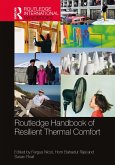
![FABRIC[ated] (eBook, ePUB) FABRIC[ated] (eBook, ePUB)](https://bilder.buecher.de/produkte/68/68132/68132485m.jpg)
